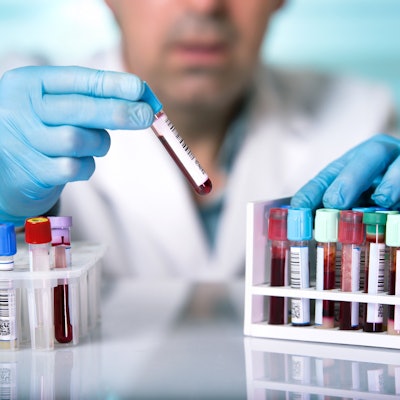
SomaLogic published proof-of-concept data in Nature Medicine on December 2 for a machine learning-based method for evaluating proteins in plasma samples that it said shows promise for predicting the risk for common diseases, such as obesity.
The Boulder, CO-based biotech company developed a method for large-scale measurement of proteins in blood and tested it in a study of almost 17,000 people enrolled in five observational studies. The results were evaluated with genetic sequencing technology and machine-learning modeling to predict disease risk. SomaLogic Chief Medical Officer Dr. Stephen Williams and colleagues from an international research team reported the results.
For each participant the study, the researchers evaluated 5,000 proteins in a plasma sample; overall, 85 million protein targets were measured, according to the company. Eleven health indicators were assessed, including liver fat, body fat, kidney filtration, and risk for cardiovascular events.
Modeling indicated high predictive power for body fat and modest accuracy for cardiovascular risk. The new method performed better than the analysis of traditional risk factors and is more convenient and less expensive, Williams and colleagues noted. The study shows that it may be possible someday to perform a comprehensive health check based on large-scale protein analysis taken from a single blood sample, the researchers concluded.



















